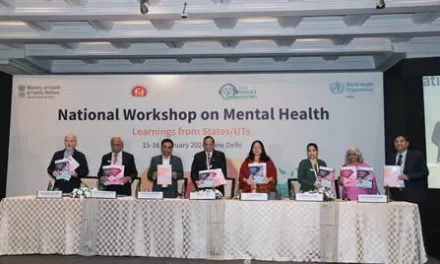New Delhi, India – A concerning trend is emerging across India, with male infertility now accounting for a significant 30-40% of conception challenges, according to leading medical experts. This escalating issue, affecting an estimated 27.5 million individuals nationwide, is increasingly recognized as a major public health concern, yet remains largely under-discussed.
Dr. Archana Dhawan Bajaj, a Gynecologist, Obstetrician, and IVF Expert at Nurture IVF Clinic in New Delhi, emphasized the gravity of the situation, stating, “Male infertility has become a major issue impacting a large segment of the global population, leading to conception difficulties for millions of couples around the world. India is home to an estimated 27.5 million infertile individuals, comprising both men and women.”
The crisis is attributed to a combination of modern lifestyle factors, environmental exposures, and genetic conditions. Dr. Amit Mutha, Senior Consultant, Sexual Medicine and Andrology at S. L. Raheja Hospital-A Fortis Associate, Mumbai, pointed to “unhealthy lifestyles like a sedentary lifestyle, lack of exercise and sleep, chronic stress, and substance abuse like smoking, consumption of alcohol and drugs” as major contributors.
Furthermore, environmental pollution is playing a significant role. “Increased incidence of Sexually Transmitted Infections due to polygamous and polyandrous sexual indulgence, along with rising levels of air pollution across metro cities and rampant plastic pollution, is another factor causing the issues,” Dr. Mutha explained. Exposure to high temperatures and radiation at workplaces, as well as surgical conditions like Varicocele, are also contributing factors.
Effective diagnosis is crucial for addressing male infertility. Dr. Sanjay Gohil, Consultant Haematopathologist at Metropolis Healthcare Ltd, highlighted the importance of advanced diagnostic tools. “Diagnostics play a critical role in the early detection of male infertility. Through semen analysis, hormonal tests, genetic testing, imaging, and other procedures, clinicians can identify the root causes of infertility.”
Key diagnostic procedures include:
- Semen Analysis: Evaluates sperm count, motility, morphology, and semen volume.
- Sperm DNA Fragmentation Test: Measures the integrity of sperm DNA.
- Hormonal Tests: Detect imbalances in testosterone, FSH, and LH.
- Genetic Testing: Identifies Y-chromosome microdeletions, karyotype abnormalities, and cystic fibrosis mutations.
- Testicular Biopsy: Assesses sperm production in cases of azoospermia.
- Imaging (Scrotal Ultrasound, MRI, Venogram): Detects structural abnormalities like Varicocele.
- Urinalysis: Detects STIs and diabetes.
Medical experts advocate for a three-pronged approach to combat the crisis: improved diagnostic tools, timely medical interventions, and concerted efforts to reduce the social stigma surrounding male reproductive health. They emphasize that while male infertility is often considered a taboo subject, many cases are treatable with correct diagnosis and assisted reproductive techniques like IUI, IVF, and ICSI.
Disclaimer: The information provided in this article is for general knowledge and informational purposes only, and does not constitute medical advice. It is essential to consult with a qualified healthcare professional for any health concerns or before making any decisions related to your health or treatment. Individual results may vary. Always seek the advice of your physician or other qualified health provider with any questions you may have regarding a medical condition.(https://www.firstpost.com/health/male-infertility-in-india-how-toxic-lifestyles-pollution-are-sabotaging-mens-reproductive-health-13875638.html)












